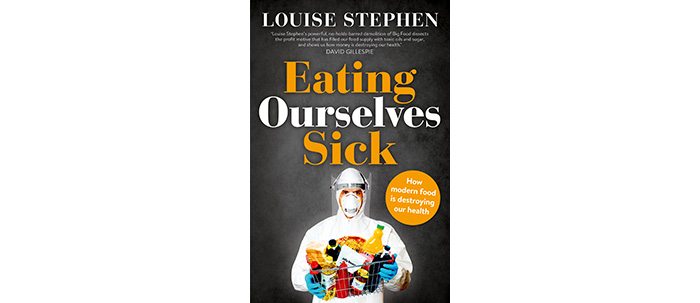When I was 33 years old I discovered I was pregnant. Routine blood tests turned up an unusual result and so more tests were undertaken. In the final analysis, the news was not good. Two months into my pregnancy and during what should have been the happiest event of my life, I was informed that I had damaged kidneys, they would probably fail within ten years and I would need dialysis or a transplant to stay alive. The reason? I had an autoimmune disease and a potentially deadly one at that.
Autoimmunity is an umbrella term used to describe the etiology or underlying cause of at least 130 serious chronic diseases, many of which are over represented in the female population making it a major women’s health issue. Once considered rare, autoimmune diseases are today the second-highest cause of chronic illness in the United States and the top cause of morbidity (sickness) in American women. America’s National Institutes of Health estimates that around 23.5 million Americans suffer from an autoimmune disease however this number pertains to only 24 of the more than 130 known diseases. Statistics for autoimmunity in the Australian population are thin on the ground however anecdotally Australia appears to be well represented along with other Western industrialised countries in this rapidly growing health problem.
With so many women, men and children affected by autoimmunity, it could certainly be seen to be an epidemic. What is curious however, in light of the numbers affected, is the apparent silence that exemplifies the quiet, stealth like nature of autoimmune disease and the lack of public conversation surrounding autoimmunity generally.
Autoimmune diseases are characterized by an exaggerated response of the immune system which leads to damage and dysfunction of organs and tissues, and can be life threatening. Some of the more commonly known autoimmune diseases include multiple sclerosis, endometriosis, fibromyalgia, autoimmune thyroiditis, type 1 diabetes, psoriasis, ulcerative colitis, scleroderma, coeliac disease and rheumatoid arthritis, while some of the lesser known include Behcet’s disease, restless leg syndrome, sperm and testicular autoimmunity and pemphigus. Scientists understand that autoimmune diseases develop over time via a constant interaction between susceptible genes and environmental factors such as foods, drugs, tobacco smoke, stress, pesticide exposure and pathogens such as viruses and bacteria.
Damage to the microbiome is also considered to play a role in disease development for example scientists at New York University Langone Medical Centre recently found that young mice (genetically predisposed to developing type 1 diabetes) treated with common childhood antibiotics in infancy were more likely to develop type 1 diabetes faster and more frequently than mice not given antibiotics. The connection between autoimmunity and the microbiome may also explain why some autoimmune disease patients cite a shift from the microbiome damaging Western diet to a more nutrient dense microbiome friendly ancestral diet as key to ameliorating some of their symptoms.
Autoimmune diseases can manifest over long periods of time with only vague symptoms hinting to the chronic and even catastrophic inflammation, tissue or organ damage occurring inside the body. The most commonly reported of these symptoms is unremitting fatigue which sufferers cite as being the most debilitating aspect of their disease and which may result in significant financial distress where fatigue impacts employment prospects. In addition, because autoimmune diseases tend to fly under the radar of many health professionals it can take frustrated patients several years and several doctors to get a firm diagnosis. A survey conducted by the American Autoimmune Diseases Association found that over 45 percent of patients have been labeled as serial complainers in their attempt to have their confusing symptoms explained to them and receive a diagnosis. The obvious problem with patients not being taken seriously is that the longer the patient takes to receive a diagnosis, the longer it takes to get help and further damage may have occurred in the interim.
The public silence surrounding autoimmunity stems from a number of issues. Firstly, autoimmunity is not seen as an official category of disease and at this stage a patient cannot make an appointment with a doctor who specialises in diagnosing autoimmunity. This however may change. Professor Yehuda Shoenfeld, head of Israel’s Zabludowicz Center of Autoimmune Diseases and author of several medical texts on autoimmunity including Autoantibodies and The Mosaic of Autoimmunity in addition to over 1000 research papers on autoimmunity and rheumatology, proposed the introduction of the world’s newest doctor – the multidisciplinary trained ‘autoimmunologist’ as a means of providing better care and reducing costs for patients where conditions span multiple tissues and organs.
In addition to the lack of autoimmunity specialists in the community and health care system there is a lack of public education and awareness about autoimmunity and autoimmune diseases. While scientists who have been working in the field for decades understand enough about autoimmunity to agree that more than 130 diseases exist, both patients and the general public appear to be uninformed about the extent of advances in understanding these diseases. If autoimmunity were to become a category of disease and public awareness campaigns help spread the word, might people be diagnosed earlier?
As the understanding of how our genes can interact with environmental factors such as the Western diet, drugs, chemicals and pathogens resulting in diseases such as autoimmunity, and as the global incidence of autoimmunity continues to rise perhaps it is time to ask the obvious question. Is it finally time to break the silence?
Oh, and in case you were wondering about what happened to me. I had a son. My kidneys failed about eight years later so I became a dialysis patient which was hard. I was lucky enough to receive a transplant around 18 months later and life has been good to me ever since.
Louise Stephen is the author of Eating Ourselves Sick, an exposé on how the food of this era is destroying our health. Available now, RRP$34.99, Macmillan Australia.
Follow her on Twitter here.








